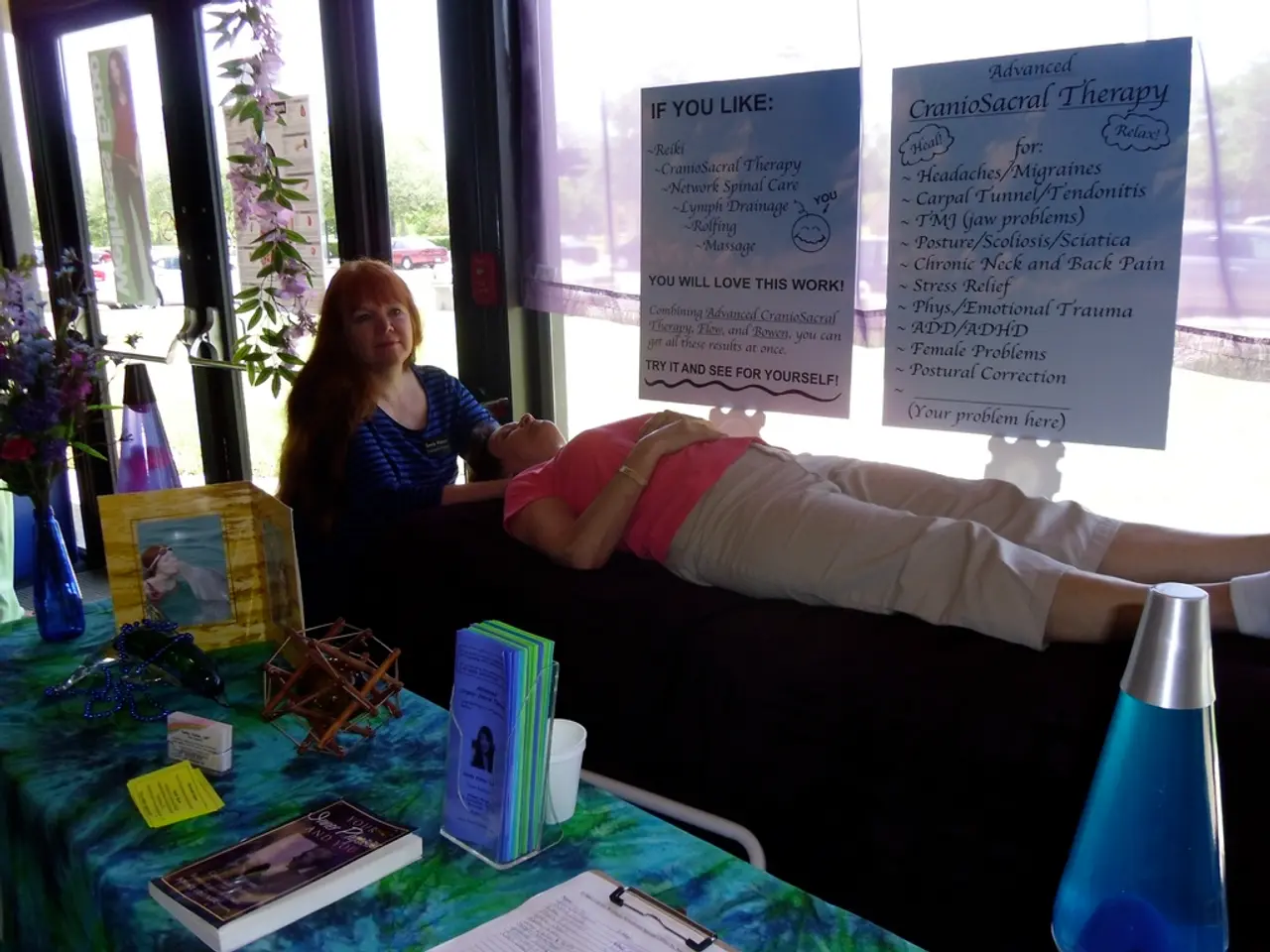Natural Management Options for Bipolar Disorder: Exploring 9 Potential Balancing Techniques
In the intricate world of mental health, finding effective treatments for conditions like bipolar disorder is of paramount importance. This article aims to illuminate various conventional and alternative treatment methods that have shown promise in managing this challenging disorder.
For those navigating life with bipolar disorder, it can often feel like a tumultuous ride, cycling between manic and depressive episodes. However, recent research reviews suggest that there are several approaches that can help.
One such approach is chronotherapeutic techniques, which are based on the organisation of circadian rhythms. Techniques like light therapy, which involves timed exposure to periods of light and darkness and regimented sleep and wake times, can help synchronize a person with bipolar disorder more solidly to the natural day-night cycle.
Cognitive Behavioural Therapy (CBT) is another beneficial treatment for people with bipolar disorder. Research indicates that it can lower relapse rates, improve depressive symptoms, reduce mania severity, and increase psychosocial functioning.
Exercise has also been found to be an effective strategy for dealing with the depressive phase of bipolar disorder. A 2016 research review involving people with bipolar disorder found that regular exercise was associated with decreased depressive symptoms, improved functioning, and a better quality of life.
Acupuncture seems like a solid complementary treatment to usual antidepressant treatment for reducing depression severity, according to a 2019 research review.
Herbs like St. John's wort, Rhodiola rosea, and cannabis are not well-researched for their effectiveness in treating bipolar disorder. Each has potential risks and benefits that should be discussed with a healthcare professional.
When it comes to alternative treatments, mindfulness meditation has been linked to increases in white matter in the anterior cingulate cortex, a brain region associated with executive attention, which is typically impaired in people with bipolar disorder. In a 2013 study, participants with bipolar disorder who meditated for 12 weeks reported lower depression and anxiety levels compared with the control.
Eye Movement Desensitization and Reprocessing (EMDR) therapy, which involves recalling traumatic events while moving your eyes in a specific pattern, has shown promise in improving symptoms of hypomania, trauma, and trauma impact in people with bipolar disorder.
Interpersonal and Social Rhythm Therapy (IPSRT) aims to help participants develop a more consistent schedule in every aspect of life. A study conducted by Ellen Frank and colleagues in 2014 involving approximately 175 participants found that people who received IPSRT for 26-plus weeks had reduced symptoms of depression and mania and improved social functioning.
When it comes to combining treatments, research suggests that when chronotherapeutics are combined with conventional treatments, outcomes for treating bipolar disorder are much better than with antidepressant drugs alone.
Omega-3 supplementation can be most effective at treating depressive symptoms by regulating neurotransmitters in the brain, according to a 2016 research review. Adding about 300 milligrams of omega-3 fatty acids to your diet seems to help aid in mood regulation.
In conclusion, while bipolar disorder can present significant challenges, a variety of treatment options are available. From CBT and exercise to acupuncture, meditation, and IPSRT, there are numerous approaches that can help lessen the symptoms of this condition. As always, it's essential to discuss these options with a healthcare professional to determine the best course of treatment.
Read also:
- Top-Notch Home and Expert Age Spot Remedies
- 'Starting today, registration for the Ayushman Bharat Scheme is available'; announced Delhi's Health Minister, Pankaj Kumar Singh
- Apparition's Significance and its Delivered Messages - as discussed by Sensenmann
- Explored the Popular Health Assessment with a Queue of 100,000 Aspiring Participants - Here's My Unadulterated Opinion





